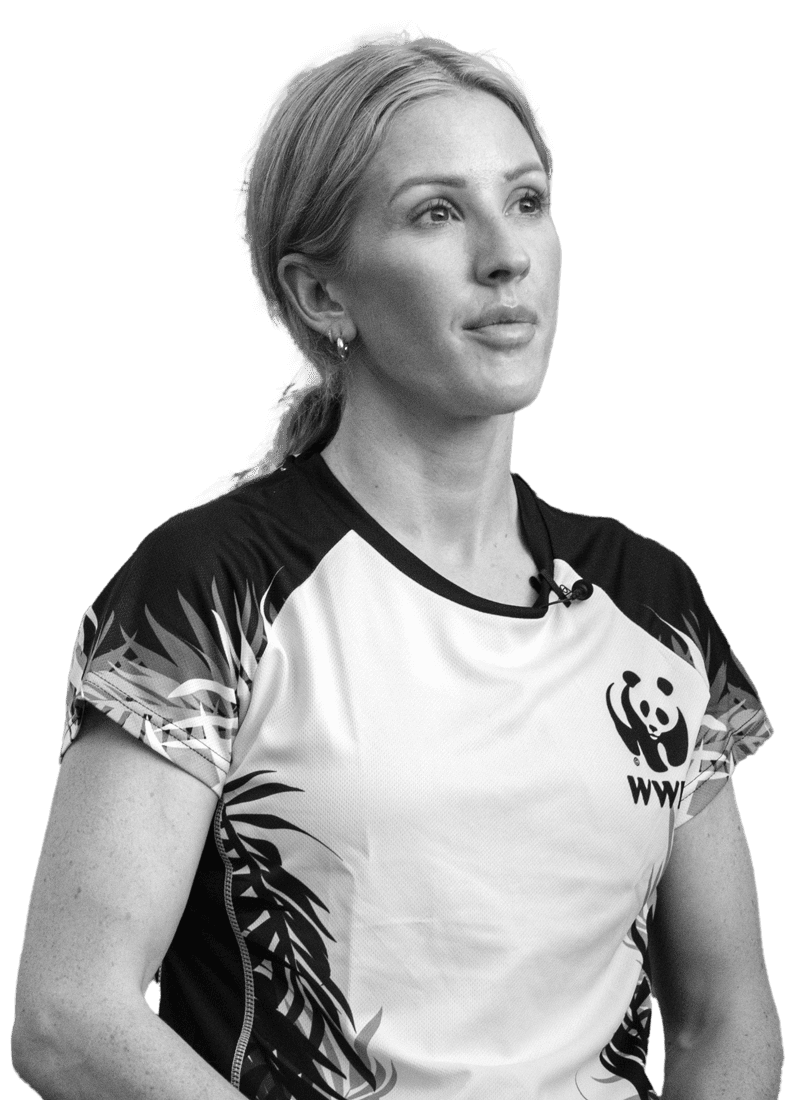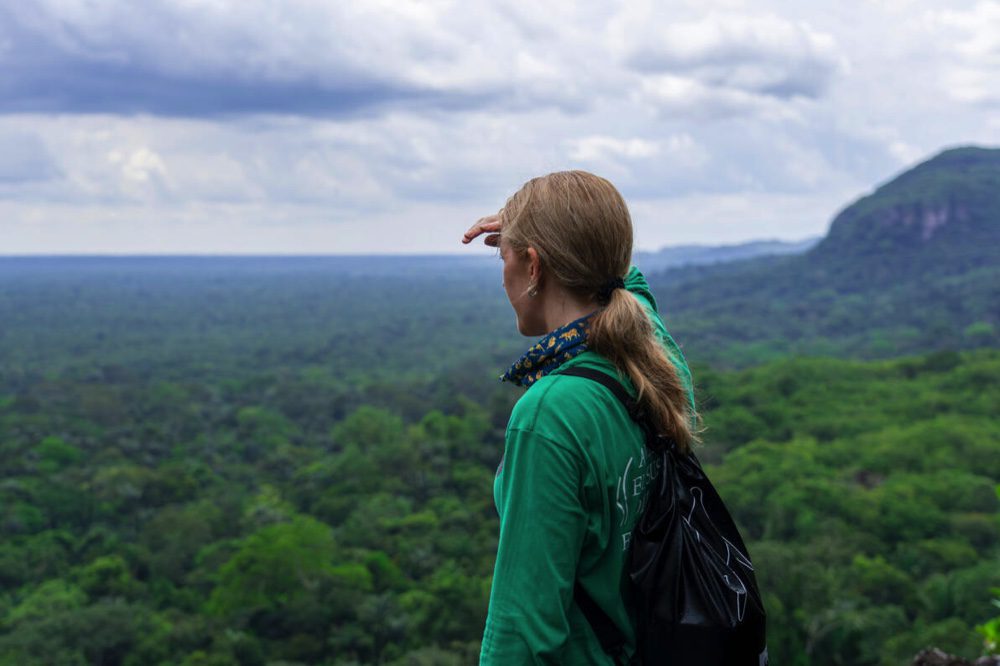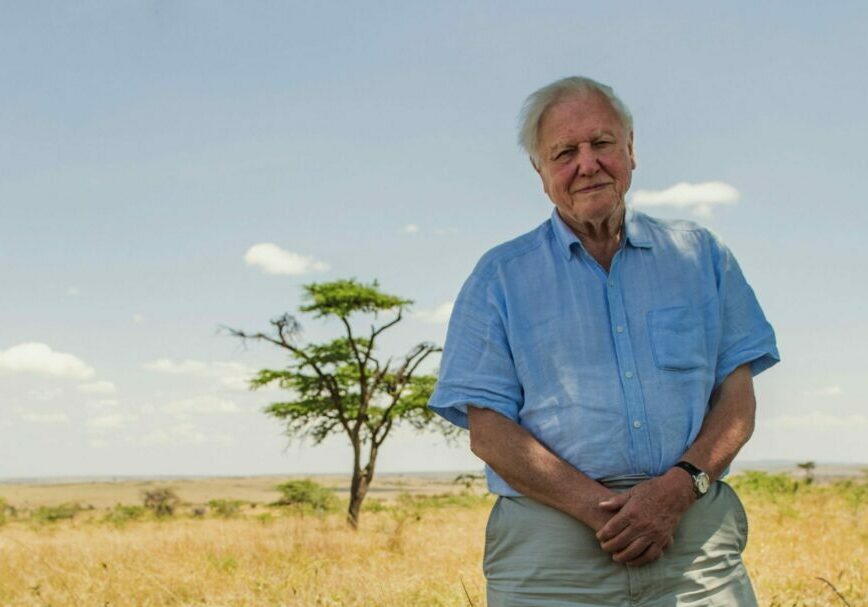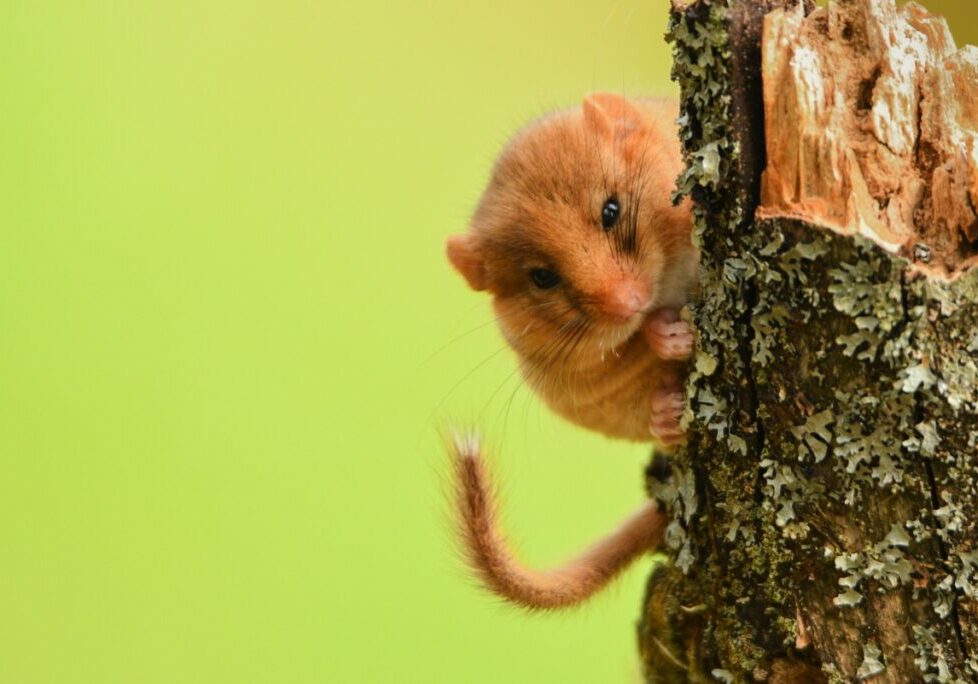
Singer and songwriter Ellie is as well known for her activism as her multi-platinum-selling albums and singles. As well as being a WWF ambassador, she’s also a goodwill ambassador for the UN Environment Programme.
She uses her wide-reaching platform online to raise awareness of issues affecting the natural world, as well as equality and diversity, and has visited locations around the world where we’re working to protect and restore nature.
‘Ellie attended COP28 in December 2023 where, with WWF, she met young activists from the Amazon to learn about the issues they’re facing.
Can you remember the moment when you decided to stand up for nature?
I hate injustice and I figured that nature was being royally screwed and nobody was doing anything. I was really confused that especially in my industry there was no-one really speaking up about it. I knew Coldplay had done quite a lot with their tour and merch, trying to make it as green as possible, which I then tried to do with my tour.
But I thought, this isn’t enough. There needs to be more people speaking out about this. And I noticed that when I started talking about it on social media – about climate change and biodiversity loss and melting glaciers – it was the equivalent of making really intense political statements.
It was the most polarising thing, where some people would applaud me and others would say, ‘I’m not following you anymore – stop being political, climate change isn’t real.’
So I got bummed out about that for a while because I realised I was probably sacrificing followers of my music for my passion for the environment. And I was like, ‘do I want to do this? Yes, I’m going to do this!’ And so I carried on.
Who is it you want to communicate with most?
Getting the message to younger people is my aim. You know, when I go to COP and environmental assemblies and things like that, I want to reach out to these young people that don’t necessarily have a place at the table.
For example, I was in Sweden for the UN Environment Programme’s 50th birthday in 2022. At these events there are really dedicated environmentalists, and some politicians and world leaders that really do care. And I was half inspired and half ‘why aren’t there more young people in these conferences?’
I met people from around the world that had travelled just to be there: a couple of people from Indigenous communities, and a guy from Ukraine – he’d come from a war-torn country just to say something. And they’re all so passionate and they know what needs to be done.
They know the technologies are there, they know the willpower is there, they know the political will isn’t necessarily there yet. And I was just blown away. So my aim is to make sure that those people that can’t be in that room get to be heard.

What’s the first step we can all take?
There’s so much that we can do individually, but I know it’s such a huge thing that it’s almost too much to take in. But I think the first step is being conscious of it so it starts falling into everything you do.
I think for me the most important thing is always taking things from the right sources because there’s so much fake news – there are so many agendas with climate change.
It’s also really important to remember that collective power is so, so strong, and when we all put our voices together we really can influence people. Most of the time we can influence political leaders and businesses and the people that really need to cut carbon emissions.
But I think if you start opening yourself up to what’s going on in the world there are people that you could follow [on social media] that might inspire you. I take so much inspiration from people who are on the front line, like those young people that I met from Indigenous communities who are literally on the front line, defending rainforests to stop people bulldozing their livelihood.
Then there are little things you can do, like be conscious of what you eat: are you eating fish from a sustainable source? Could you cut down on meat?
I’m not perfect in any way. I get called a hypocrite all the time, but I’d rather speak up and draw attention to it than be cynical.
How do you manage climate anxiety?
I definitely had a few months when I’d just had my baby and was trying to get to grips with being a mum that I did hide away for a bit. I couldn’t bring myself to do any activism or speak out about things because I just felt too overwhelmed.
There was war. There were wildfires. There were political things going on that were awful for nature and for the climate. I just didn’t want to know.
And then I started feeling like myself again. Once I felt like I’d come to the other side of that, it did give me a rocket up my bum because I realised I really want my son to have the relationship with nature that I had. Also, I don’t want him growing up in a world where millions of species are going to be at risk of extinction.
All the animals that are in his books and the animal noises he likes to make – the idea that some of those things could be lost forever – that’s not right. You can’t just shrug that off as, ‘oh well, never mind, things will become extinct, we’ll still survive.’ That’s not guaranteed.
We need nature, we need biodiversity – everything and everyone on this planet is all interconnected, so when we lose one thing, we lose another and so on. So I don’t want my son to grow up in that world. He doesn’t deserve to, and neither do any younger generations. We are the generation to change this for them, and so we just have to do it. We have no choice.
BANNER IMAGE © DAVID FARJARDO / WWF-COLOMBIA
The wild is calling. It’s time to act.
To hear Ellie’s interview in full you can subscribe to our podcast. Just search for Call of the Wild wherever you listen to podcasts, or visit our Call of the Wild site
More to explore

Stand up for the future of our forests
A new report shows the world is failing to protect its forests. But there’s still time to get back on track and end deforestation

